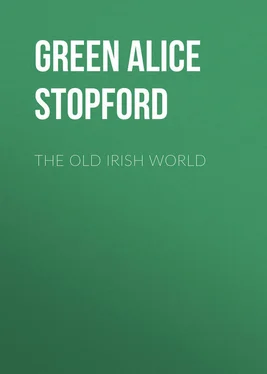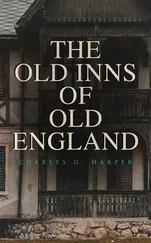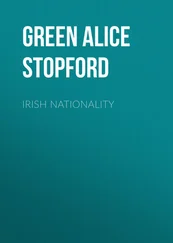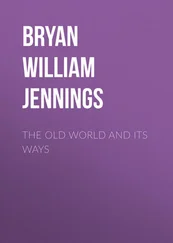Alice Green - The Old Irish World
Здесь есть возможность читать онлайн «Alice Green - The Old Irish World» — ознакомительный отрывок электронной книги совершенно бесплатно, а после прочтения отрывка купить полную версию. В некоторых случаях можно слушать аудио, скачать через торрент в формате fb2 и присутствует краткое содержание. Жанр: literature_19, foreign_antique, foreign_prose, Историческая проза, на английском языке. Описание произведения, (предисловие) а так же отзывы посетителей доступны на портале библиотеки ЛибКат.
- Название:The Old Irish World
- Автор:
- Жанр:
- Год:неизвестен
- ISBN:нет данных
- Рейтинг книги:4 / 5. Голосов: 1
-
Избранное:Добавить в избранное
- Отзывы:
-
Ваша оценка:
- 80
- 1
- 2
- 3
- 4
- 5
The Old Irish World: краткое содержание, описание и аннотация
Предлагаем к чтению аннотацию, описание, краткое содержание или предисловие (зависит от того, что написал сам автор книги «The Old Irish World»). Если вы не нашли необходимую информацию о книге — напишите в комментариях, мы постараемся отыскать её.
The Old Irish World — читать онлайн ознакомительный отрывок
Ниже представлен текст книги, разбитый по страницам. Система сохранения места последней прочитанной страницы, позволяет с удобством читать онлайн бесплатно книгу «The Old Irish World», без необходимости каждый раз заново искать на чём Вы остановились. Поставьте закладку, и сможете в любой момент перейти на страницу, на которой закончили чтение.
Интервал:
Закладка:
This fiction of a “strange race” has become a kind of special philosophy which is dragged in to interpret the most ordinary actions of the Irish. For example, “the march of the soldiery upset the balance of the excitable Irish farmer, and he neglected his land” – a fact which in any other country would need no “race” explanation. Through the story of that war, whose end was to transfer the soil of Ireland, five-sixths of it, to lords of another race and religion, the old inhabitants of two thousand years’ possession are made to appear as “the Irish factions”; their vice is patent, while English crimes are accidental, inadvertent, or high-spirited. If we want to know why the Irish people lost faith in the Stuarts who had betrayed and outraged them at every turn, we are referred to the simple habits of a strange and childish race. “The Celt wants to see a sovereign regularly in order to adore him”: “A principle must be set forth by a person, and the more attractive the person the stronger the hold of the principle.” As we watch the strong ceaseless current of Irish life such theories are swept beyond our sight. The Irish poet told his people another tale:
“It is the coming of King James that took Ireland from us,
With his one shoe English and his one shoe Irish
He would neither strike a blow nor would he come to terms,
And that has left, so long as they shall exist, misfortune upon the Gaels.”
In his laborious work on the Norman settlement, Mr. Orpen deals with the Irish in the usual conventional manner: – “The members of this family were always killing one another.” “The chieftain … had no higher conception of duty than to increase the power of his clan; with this object in view, he was stayed by no scruples”; as for the clansman, “the sentiment for ‘country’ in any sense more extended than that of his own tribal territory, was alike to him and to his chief unknown.” This description, like the terms “tribal” and “nomad,” has long been habitual, and accepted with as little enquiry as those words. Mr. Orpen’s clients, the “Normans,” we may assume to have been nobly free from any such barbarous notions of individual aggrandisement, regardless of “their country’s” claims.
Mr. Bagwell, the leading historian of the English occupation under Tudors and Stuarts, throws his searchlight on the Irish: – “They were barbarous, but they could appreciate virtue.” “The Irish were subtle, fond of license, and ready for anything as long as it was not for their good.” May we remember the saying of the Irish themselves in those days: – “Ask for nothing that you would not deem a benefit to you, and before all praise God.” Again, according to Mr. Bagwell, “the people had no other idea of trade than to extort exorbitant prices.” This quality scarcely seems to need a racial explanation; it has been found elsewhere in time of war. But under all circumstances the “primeval” theory of Irishmen must be maintained. The character of the “natives” – using this word with its “savage” implication – plays a great part in our history. Thus, when a boat load of treasure from the Armada was washed on shore Mr. Bagwell notes that “such unaccustomed wares as velvet and cloth of gold, fell into the hands of the natives.” Cloth of gold and velvet had for centuries been known to the wealthy Irish; even in England they were not the clothing of the “natives,” if such a term could be applied to Englishmen. Again we are told that “the Irish, by being held always at arm’s length, had become more Irish and less civilised than ever”; held at arm’s length is an ingenious phrase for evicting a people from their homes, and throwing them out on bogs and mountains. The hardships of hunted famine-stricken outlaws hanging round their old homes, is represented in this kind of history as the life which would be naturally chosen by wild Irish “nomads.” “True children of the mist, they [the O’Tooles] either bivouacked in the open or crept into wretched huts to which Englishmen hesitated to give the name of houses. They cultivated no land.” “Thus one by one did the chiefs of tribal Ireland devour each other.” As for “the men of free blood, whose business had always been fighting, and who would never work … when the chiefs were gone they had nothing to do but to plunder, or to live at the expense of their more industrious, but less noble, neighbours.” “The island was poor and the people barbarous, and no revenue could be expected.” It is true, indeed, that the wealth did not go the way of the Crown; officials had other uses for it.
In the same way Mr. Chart, in his study of Irish life during the dark years after the Union – years of acute suffering, hunger, disillusionment and despair – discovers “a sullen discontent which, as usually happens in Ireland, broke out occasionally into acts of lawlessness and barbarity,” as if some special form of iniquity had its home in Ireland. At a time when the whole people in England were in a turmoil of revolt, on the verge of revolution, he mourns “the fatal Irish tendency to rush into extremes,” and that magistrates and police had to accustom “a hot-headed and violent-tempered race to curb itself within legal limits” – as if this was an unusual fact, peculiar to this one race of the world, predestinate to evil. It would seem that in Ireland alone it is not safe to give any man “full and unconstrained control over his personal and political enemies,” and therefore “Ireland is no country for a volunteer police.”
I suppose there is not another history in the world in which this free slinging of blame and advice is continuously kept up at so fine a pitch. If a problem in Irish life lifts its head, some puzzling fact or tendency that demands explanation, a stone is ready in the orthodox historian’s sling: the dilemma is ended by one of the useful words – “primitive,” “tribal,” “kerne,” “nomad,” “barbarous,” “Celtic.” By constant reiteration I fancy writer and reader now scarcely notice them, so much have they become the symbols of Irish history, and so deeply have they sunk into the public mind.
Thus the stream of calumny still flows on. The latest voice from Trinity College, that of Professor Mahaffy, in his Introduction to the third volume of the “Georgian Society,” is of the old familiar type. It should be, he explains, “the interest and duty” of historians to maintain certain desirable opinions – this, according to Dr. Mahaffy, adds to their credibility. Once more, therefore, we have from him “the elements of primeval savagery which still existed in the Irish people, and which they had in common with almost all primitive races and societies” (and this by the way, in the 18th century, after six hundred years of English compulsion). How well we know the old battered and time-exhausted phrase! Of course we have again our old friend, the story of O’Cahan sitting with the naked women, served up as the ever-repeated type of all the generations of Irish in their habitual squalor. For, we are told, “since the earliest times the greater part of the Irish … have not found any discomfort in squalor.” But for English law this singular people would apparently never put on clothes at all, winter or summer, good or bad weather, in any northern gale from the Arctic ice. Ulstermen now-a-days are certainly a degenerate race in physical endurance.
It is interesting to follow this story of O’Cahan.
The story begins with a Bohemian baron, name unknown, whom Foynes Moryson, an Englishman, saw on one occasion. Here is the exact tale: – “The foresaid Bohemian baron, coming out of Scotland to us by the north parts of the wild Irish, told me in great earnestness (when I attended him at the Lord Deputy’s command), that he coming to the house of the O’Cane, a great lord among them, was met at the door with sixteen women, all naked, excepting their loose mantles; whereof eight or ten were very fair, and two seemed very nymphs; with which strange sight his eyes being dazzled, they led him into the house, and there sitting down by the fire with crossed legs like tailors, and so low as could not but offend chaste eyes, desired him to sit down with them. Soon after O’Kane, the lord of the country, came in all naked excepting a loose mantle and shoes, which he put off as soon as he came in, and entertaining the baron after his best manner in the Latin tongue, desired him to put off his apparel, which he thought to be a burden to him, and to sit naked by the fire with his naked company.”
Читать дальшеИнтервал:
Закладка:
Похожие книги на «The Old Irish World»
Представляем Вашему вниманию похожие книги на «The Old Irish World» списком для выбора. Мы отобрали схожую по названию и смыслу литературу в надежде предоставить читателям больше вариантов отыскать новые, интересные, ещё непрочитанные произведения.
Обсуждение, отзывы о книге «The Old Irish World» и просто собственные мнения читателей. Оставьте ваши комментарии, напишите, что Вы думаете о произведении, его смысле или главных героях. Укажите что конкретно понравилось, а что нет, и почему Вы так считаете.












